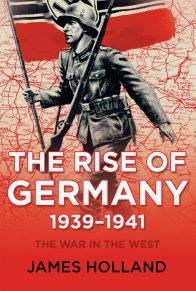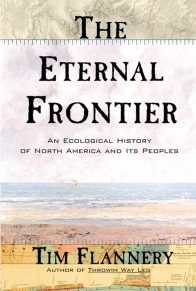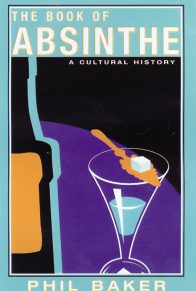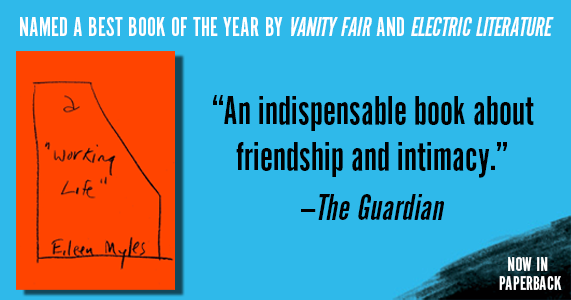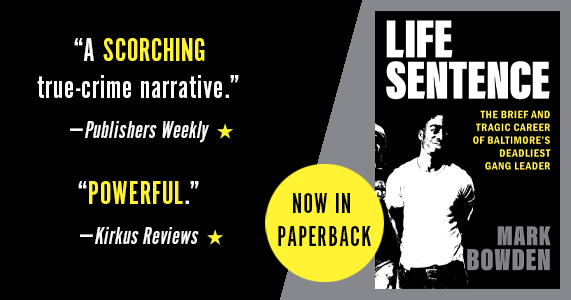In recent months, as violence between Israeli Jews and Palestinians raged, the range of dissent tolerated within the American Jewish community once again narrowed. Before expressing criticism, one is expected to assert one’s love and support of Israel as a Jewish state. And then, if a critic is allowed a place at the table, it is certainly at the foot. There are few still alive who remember a time when, even among Zionists, debate flourished and the nature of Jewish settlement in Palestine was still a question. We want to present in this section the voices of dissenters over the course of the Zionist century, beginning with selections from Ahad Ha”am’s report on his first visit to Palestine in 1891 and ending in 1982 with Henry Schwarzschild’s impassioned resignation from the board of the journal Sh’ma.
Today, any American Jew who would dare to express the views so freely articulated in the pieces that follow would be drummed out of the community as a traitor, an Israel-basher, a self-hating Jew. It is therefore striking to note that most of these writers positioned themselves within Zionism and, despite their views, remained respected members of the Jewish community–albeit always criticized and, particularly after World War II, often marginalized. Despite the “Jewish-American” designation in this book’s title, several of the excerpts presented here are from writers who were neither American by birth nor by domicile (Judah Magnes and I. F. Stone are the only ones born in the United States; Hannah Arendt and Albert Einstein lived out their lives in the United States). We include them to demonstrate the lucidity, directness and moral force of critical voices that are nowadays a neglected part of Jewish history. (It’s unimaginable that any of these writings would today find their way into the curriculum of a standard American Hebrew school.) Occasionally, their words disappoint, reflecting the colonialist and racist attitudes of the authors’ times. But most often they remind us that the trajectory of the conflict that is roiling Palestine and Israel today was clear from the very beginning for those who only would see it.
Ahad Ha’am (“One of the People”) was born Asher Ginsberg in the Russian Ukraine in 1856; he died in 1927 in Tel Aviv. A Hebrew essayist, he argued that “Zionism could not solve the “problem of the Jews’–their economic, social and political plight–but it could solve “the problem of Judaism,” i.e., assimilation” by “fostering a secular Jewish culture based on Jewish national consciousness and the renewal of Hebrew as a means of assuring the continuity of Jewish creativity.” For Ahad Ha’am the Jewish community in Palestine would ‘serve as a “spiritual center” nourishing Jewish life in the Diaspora.”1
Ahad Ha”am made his first trip to Palestine in 1891. The trip was prompted by concern that the Jaffa members of the semi-secret elite order, Bnei Moshe, were mishandling land purchases for prospective immigrants and contributing to soaring land prices. Ahad Ha’am’s reputation as Zionism’s major internal critic has its roots in this essay,2 found in Kol Kitve Ahad Ha’am (The Jerusalem Publishing House, 1953.)
A Truth from Eretz Yisrael
Translated by Hilla Dayan
. . . We who live abroad are accustomed to believe that almost all Eretz Yisrael is now uninhabited desert and whoever wishes can buy land there as he pleases. But this is not true. It is very difficult to find in the land [ha”aretz] cultivated fields that are not used for planting. Only those sand fields or stone mountains that would require the investment of hard labor and great expense to make them good for planting remain uncultivated and that’s because the Arabs do not like working too much in the present for a distant future. Therefore, it is very difficult to find good land for cattle and not only peasants, but also rich landowners, are not selling good land so easily. . . .
We who live abroad are accustomed to believing that the Arabs are all wild desert people who, like donkeys, neither see nor understand what is happening around them. But this is a grave mistake. The Arab, like all the Semites, is sharp minded and shrewd. All the townships of Syria and Eretz Yisrael are full of Arab merchants who know how to exploit the masses and keep track of everyone with whom they deal–the same as in Europe. The Arabs, especially the urban elite, see and understand what we are doing and what we wish to do on the land, but they keep quiet and pretend not to notice anything. For now, they do not consider our actions as presenting a future danger to them. They therefore do their best to exploit us, to benefit from the newly arrived guests as much as they can and yet, in their hearts, they laugh at us. The peasants are happy when a Jewish colony is formed among them because they get better wages for their work and get richer and richer every year, as experience has shown us. The big landowners also have no problem accepting us because we pay them, for stone and sand land, amounts they would never have dreamed of getting before. But, if the time comes that our people’s life in Eretz Yisrael will develop to a point where we are taking their place, either slightly or significantly, the natives are not going to just step aside so easily . . .
If we have this ambition to settle in a new country and radically change our way of life and we truly want to achieve our goals, then we can’t ignore the fact that ahead of us is a great war and this war is going to need significant preparation. . . .
The only one good thing about all our actions–the purchase of land–is failing because of disorder and lack of unity. He who sees how land is bought and sold in Eretz Yisrael these days never saw such a detestable and despised competition in his life. All the mongering between the shopkeepers and the petty merchants in one of those Jewish ghettos is nothing but justice and truth considering the state of affairs in Eretz Yisrael. Three months ago, when I was there, there were only two speculating companies (those who buy big chunks of land to sell them piece by piece), and even then we realized that future land speculation would be a problem for the Yishuv. Shortly after, the number of speculating companies grew alarmingly, and before I left there were already six . . . and some of the newcomers, to our shame, describe themselves as “future colonialists.” . . . It is not our way to learn nothing for the future from the past. We must surely learn, from both our past and present history, how careful we must be not to provoke the anger of the native people by doing them wrong, how we should be cautious in our dealings with a foreign people among whom we returned to live, to handle these people with love and respect and, needless to say, with justice and good judgment. And what do our brothers do? Exactly the opposite! They were slaves in their diasporas, and suddenly they find themselves with unlimited freedom, wild freedom that only a country like Turkey can offer. This sudden change has planted despotic tendencies in their hearts, as always happens to former slaves [“eved ki yimlokh]. They deal with the Arabs with hostility and cruelty, trespass unjustly, beat them shamefully for no sufficient reason, and even boast about their actions. There is no one to stop the flood and put an end to this despicable and dangerous tendency. Our brothers indeed were right when they said that the Arab only respects he who exhibits bravery and courage. But when these people feel that the law is on their rival’s side and, even more so, if they are right to think their rival’s actions are unjust and oppressive, then, even if they are silent and endlessly reserved, they keep their anger in their hearts. And these people will be revengeful like no other. . . .
If only we would have in Eretz Yisrael good, honest and healthy people, hard workers who live off their labor in peace and order. Such people would not have initially created hatred among the natives because they would not have provoked them and trespassed their borders. Even if eventually their jealousy would have turned into hate, it wouldn’t have mattered because by then our brothers would have been able to strengthen their hold on the land by sheer numbers, their large and rich estates, their unity and their organized way of life. [But as long as things continue the way they are, with uncontrolled land speculation,] the society that I envision, if my dream is not just a false notion, this society will have to begin to create itself in the midst of fuss, noisiness and panic, and will have to face the prospects of both internal and external war . . .
Judah Magnes was an American Reform rabbi, born in San Francisco in 1877, whose charisma, intelligence and social connections quickly catapulted him to leadership positions in the American Jewish community. An early Zionist, Magnes resigned from the American branch of the movement in 1915 because according to Rabbi Arthur Herzberg, “neither a Jewish state nor Jewish mass political action, but his religious version of Ahad Ha-Amism–careful colonization and spiritual rebirth–seemed to him to be the meaning of Zionism.”3 In 1917, as the United States moved toward war, Magnes “[t]o the consternation of friends and the community at large . . . took up the causes of pacifism, civil liberties, and anti-imperialism.”4 Magnes moved to Palestine in 1922, where he served as chancellor and then first president of the Hebrew University in Jerusalem from 1925 until his death. In Palestine and in Washington D.C., Magnes was a forceful advocate for a bi-national state and Arab-Jewish reconciliation. At the time of his death, in late 1948, he was arguing for an Arab-Jewish confederation.
In the following letters to Chaim Weizmann5 and Felix Warburg,6 Magnes clearly articulates his views regarding Jewish policy in Palestine and relations between Jews and Arabs. “The present situation” Magnes refers to was a series of attacks by Arab rioters on Jews throughout Palestine (including massacres in Hebron and Safad). Within one week 133 Jews and 116 Arabs were dead and hundreds wounded.7
These letters are found in Dissenter in Zion: from the Writings of Judah L. Magnes edited by Arthur A. Goren (Harvard University Press: Cambridge, MA, 1982).
To Chaim Weizmann
London
Zurich, September 7, 1929
Dear Dr. Weizmann,
You asked me over the telephone last night to write you my views on the present situation. I wanted to have a long talk with you, and for that reason had been trying to get in touch with you for several days. Writing is a poor substitute for an oral exchange of opinions, and I shall try to be brief.
I think that the time has come when the Jewish policy as to Palestine must be very clear, and that now only one of two policies is possible. Either the logical policy outlined by Jabotinsky in a letter in the Times which came today, basing our Jewish life in Palestine on militarism and imperialism; or a pacific policy that treats as entirely secondary such things as a “Jewish State” or a Jewish majority, or even “The Jewish National Home,” and as primary the development of a Jewish spiritual, educational, moral and religious center in Palestine. The first policy has to deal primarily with politics, governments, declarations, propaganda and bayonets, and only secondarily with the Jews, and last of all with the Arabs; whereas the pacific policy has to deal first of all with the Jews, and then with the Arabs, and only incidentally with governments and all the rest.
The imperialist, military and political policy is based upon mass immigration of Jews and the creation (forcible if necessary) of a Jewish majority, no matter how much this oppresses the Arabs meanwhile, or deprives them of their rights. In this kind of policy the end always justifies the means. The policy, on the other hand, of developing a Jewish spiritual Center does not depend upon mass immigration, a Jewish majority, a Jewish State, or upon depriving the Arabs (or the Jews) of their political rights for a generation or a day; but on the contrary, is desirous of having Palestine become a country of two nations and three religions, all of them having equal rights and none of them having special privileges; a country where nationalism is but the basis of internationalism, where the population is pacifistic and disarmed–in short, the Holy Land.
The one policy may be termed that of militarist, imperialist, political Zionism; the other that of pacific, international, spiritual Zionism; and if some authorities will not choose to call the latter idea Zionism, then let it be called the Love of Zion, or the Return to Zion, or any other name that you will.
We have been toying with the words “Jewish State,” ‘majority,” “Jewish Palestine,” “politics,” “Balfour Declaration,” etc., long enough. It is time that we came down to realities. We have passed resolutions concerning cooperation with the Arabs, but we have done very little seriously to carry them out.
I do not say that this is easy of achievement nor do I absolutely know that it is possible. The Palestine Arabs are unhappily still half savage, and their leaders are almost all small men. But this policy of cooperation is certainly more possible and more hopeful of achievement than building up a Jewish Home (National or otherwise) on bayonets and oppression. Moreover, a Jewish Home in Palestine built up on bayonets and oppression is not worth having, even though it succeed, whereas the very attempt to build it up peacefully, cooperatively, with understanding, education, and good will, is worth a great deal, even though the attempt should fail.
The question is, do we want to conquer Palestine now as Joshua did in his day–with fire and sword? Or do we want to take cognizance of Jewish religious development since Joshua–our Prophets, Psalmists and Rabbis, and repeat the words: “Not by might, and not by violence, but by my spirit, saith the Lord.” The question is, can any country be entered, colonized, and built up pacifistically, and can we Jews do that in the Holy Land? If we can not (and I do not say that we can rise to these heights), I for my part have lost half my interest in the enterprise. If we can not even attempt this, I should much rather see this eternal people without such a “National Home,” with the wanderer’s staff in hand and forming new ghettos among the peoples of the world.
As you know, these are not new views on my part. I was read out of the Zionist Organization of America in 1915 because among other things, I contended that the Jews should ask for no special privileges in Palestine, but should be content with equal rights. When the Balfour Declaration was issued and the Mandate signed, I did not rejoice. I wrote two modest newspaper articles and delivered a speech (which is printed) in the sense of the views as given above. When you and Felix Warburg and I were discussing matters in Palestine, you with your usual keenness referred to me as believing Zionist policy was altogether too political. I have, as you also know, done what little I could to help bring about a united front for Palestine ever since the beginning, and I must confess that I had hoped that the non-Zionist members of the Agency might give the whole movement a non-political, non-imperialist turn. But your great per­suasiveness has carried them with you on the political issues also, and it was mainly on this account that I could not accept the invitation to participate in the Agency. It is also for this reason that I have resolutely tried to keep the University entirely distinct from the political organization.
All these years I have kept silent, not wishing to obtrude what appeared to me my minority views, and I had thought that by devoting myself wholly and without deflection to the University, I could make a contribution to my kind of Zionism. But I cannot keep silent for Zion’s sake in these tragic days, and I want to do what little I can to give voice to the views to which I have been trying hitherto to give expression through work alone.
You said you would want to convey my views to the meeting of the Actions Committee, and you are at liberty to read them this letter if you think it worthwhile.
I am sending a copy of this letter to Felix Warburg.
I sympathize with you in the fearful burden you now have to bear, and I can only pray that you may be led to walk in the right path.
Yours truly, JIM
To Felix Warburg
New York
Paris, September 13, 1929
Dear Felix,
I am enclosing a copy of a letter I wrote to Doctor Weizmann on September 7th. I have had no answer as yet. From this you will get my general point of view. You will see from this probably more clearly than I could make clear to you before, why I could not join with you in the Agency. You may have thought that there was too much of the personal element in it. There is, of course, in everything. But my attitude is based on something much deeper, as you have doubtless felt, but as I doubtless have been unsuccessful in conveying to you.
I have, I regret to say, no confidence whatever that Doctor Weizmann and his associates understand the situation today any better than they have before. They may pass peace resolutions and agree to White Papers and lots of other things out of political necessity, but not out of inner conviction. Unless the whole aim of Zionism is changed, there will never be peace. Maybe there can be no peace anyway, but in that event the Jewish People would have added a glorious instead of a disgraceful page to its history.
Palestine does not belong to the Jews and it does not belong to the Arabs, nor to Judaism or Christianity or Islam. It belongs to all of them together; it is the Holy Land. If the Arabs want an Arab national state in Palestine, it is as much or as little to be defended as if the Jews want a Jewish national state there. We must once and for all give up the idea of a “Jewish Palestine” in the sense that a Jewish Palestine is to exclude and do away with an Arab Palestine. This is the historic fact, and Palestine is nothing if it is not history. If a Jewish national home in Palestine is compatible with an Arab national home there, well and good, but if it is not, the name makes very little difference. The fact is that nothing there is possible unless Jews and Arabs work together in peace for the benefit of their common Holy Land. It must be our endeavor first to convince ourselves and then to convince others that Jews and Arabs, Moslems, Christians, and Jews have each as much right there, no more and no less, than the other: equal rights and equal privileges and equal duties. That is practically quite sufficient for all purposes of the Jewish religion, and it is the sole ethical basis of our claims there. Judaism did not begin with Zionism, and if Zionism is ethically not in accord with Judaism, so much the worse for Zionism.
I must say that I have been amazed that not one official Jewish voice has been lifted in sympathy with such slain and injured Moslems or Christians who may have been innocent; that no money was earmarked for their in­jured. Of course, the Arabs were the aggressors and the most bloodthirsty. Do I also have to be shouting that? But do you not know that we, too, have had our preachers of hate and disseminators of lies, our armed youth, our provocative processions, our unforgivable stupidity in our handling of the Western Wall incidents since last Yom Kippur, making out of what should have been a police incident an international political issue? Politics, statesmanship, hobnobbing with the masters of empire, using high-sounding phrases instead of disciplining and purifying our community and trying to understand and make terms with our neighbors.
Is it conceivable that responsible men should at this moment of all moments make additional demands for increased immigration, etc., a “blue-white book” instead of the White Book which they signed with more than Jesuitical reservations? Is it conceivable that among all the official Zionist demands and proposals there is not the faintest hint that a Jewish-Arab understanding, a peace conference if you will, is more important than anything else? Of course life must be protected by the Mandatory Power–that is the most elemental of considerations. Of course the bureaucracies of Jerusalem (British and Jewish) have not done their simplest duty and should be investigated without flinching. Of course the guilty–Arabs, British, Jews–should be punished. But he who takes it all out in this and in making chauvinistic demands is no better than were the war mongers in 1914 and 1917. The situation is essentially the same; each side talks of the other’s Alleinschuld [sole blame] and of war a la victoire integrale [for total victory], whereas they should be thinking also of their own sins and of ways of stopping the war and of living at peace. And if the Arabs are not capable of this, we Jews must be, else we are false to our spiritual heritage and give the lie to our much-vaunted higher civilization. If I were as religious a man as I should like to be, I should say that this was God’s testing of His People. Can we be humble and courageous and intelligent enough to make this testing into a source of blessing?
You may ask me for a practical program. There are practical programs long since worked out on paper. But what is the good of them if the whole spirit and aim of those officially charged with carrying them out are such as to make these programs only a necessary evil for them or a burden or a lie? . . .
Martin Buber was born in Vienna in 1878. A theologian and philosopher, he was also “a political radical, a humanist socialist actively committed to a fundamental economic and political reconstruction of society as well as to the pursuit of international peace and fraternity.”8 Buber joined the Zionist movement in 1898 and for a few months worked as the editor of Die Welt, Zionism’s official publication. But he soon broke with Theodore Herzl and aligned himself with Zionism’s more cultural and spiritual, rather than political, movement.9 Buber moved to Palestine in 1939 and held the chair in social philosophy at Hebrew University until he retired in 1951. He died in 1965.
In April 1936 the Arabs launched a revolt against the British occupation. In May 1939, in what the Zionist movement regarded as an act of treachery, the British issued a White Paper that imposed severe limitations on the purchase of land by Jews, limited Jewish immigration to 75,000 over five years (after which all immigrants would require Arab agreement), and proposed an independent Palestine “in which Arabs and Jews share in government.”10 The Yishuv (the Jewish settlers in Palestine) held angry demonstrations and their underground organization, the Irgun, initiated an outburst of Jewish attacks, including sabotage, murder, and deliberate bombing of civilians. The following essay first appeared in the newspaper Davar on June 5, 1939, it is found in A Land of Two Peoples: Martin Buber on Jews and Arabs, edited by Paul R. Mendes-Flohr (NY: Oxford Uni­versity Press, 1983).
Our Pseudo-Samsons
Apparently there are young men in the Yishuv who fancy themselves to be contemporary Samsons. It seems they regard the placing of mines in the path of vehicles bearing innocent, defenseless non-Jews or attacking the homes of innocent, defenseless non-Jews as similar to Samson’s exploits. They tell youths in the street that the time has come to act as Samson did; and if those youths want to be contemporary Samsons, all they have to do is learn from the speakers. It goes without saying that they find plenty of children who like listening to such things.
How is this to be explained? When we returned to our land after many hundreds of years, we behaved as though the land were empty of inhabitants–no, even worse–as though the people we saw didn’t affect us, as though we didn’t have to deal with them, that is, as if they didn’t see us. But they did see us. They saw us, not with the same clarity with which we would have seen them had we been the veteran denizens of the land and another people came to settle in it in ever-increasing numbers; not with the same but with sufficient clarity, clarity that naturally only increased from year to year. We didn’t pay any attention to this development. We didn’t say to ourselves that there is only one way to forestall the results of this ever-increasing clarity of vision: to form a serious partnership with that people, to involve them earnestly in our building of the land, and to give them a share in our labor and in the fruits of our labor. We did not wish to believe those among us who sounded the warning.
Meanwhile, in any case, in the arena of world politics where we were suddenly needed, we had received the promise of protection for our undertaking [in Palestine] from one great power, a promise that the League of Nations had, as it were, confirmed. Wasn’t that enough for us? We didn’t say to ourselves that, in the world of politics in which we have lived for twenty-five years or more now, such promises are valid only as long as the political situation created by them exists unchanged and that we should prepare ourselves for the hour of change, bound to come sooner or later, with a different sort of guarantee: instead of a declaration–reality, the reality of a shared undertaking and of common interests with our neighbors in the Land. But we didn’t want to believe those among us who sounded the warning. . . . And to whoever pointed to the growing Arab national movement, we responded that there was no need to take it into account–or that we would assuredly prevail. Therefore everything has happened as it did. Jewish terrorist gangs have perpetrated acts that our youth regard as Samson-like deeds. Perhaps there were those among the terrorists who saw themselves as contemporary Samsons, that is, if they knew anything of Samson. The question of whom they regard as the contemporary Philistines invading the country, the British or the Jews, requires no reply. I assume they mean both. I don’t believe that there is a single person among us who sees these murderers as Samsons. Why? Because the Samsons of old fought face to face against a well-armed group that outnumbered them; because terrorism is not legitimate warfare. We refuse to regard them as heroes, but rather as madmen. I do not mean by that, however, madman in the heroic sense, i.e., a man thought to be mad but in reality a hero; no, I mean by madman someone who really has lost his wits, a real fool.
And our attitude to the Arabs? Almost all of us knew how to distinguish between the [Arab] terrorists and the Arab people. But there’s no hope that the Arabs will be able to distinguish between our thugs and the Jewish people, for very long. And then how shall we arrive at an understanding with the Arabs? It is true that there are those among us who consider such an understanding unnecessary and even harmful; but only politicians of illusion such as they–who only know how to replace one old, broken illusion with another, equally ephemeral–only they could imagine that our Yishuv will exist forever without understanding and cooperation with the Arabs. At this critical hour, whoever encourages eruptions of blind violence, endangers the very existence of the Yishuv. Everything that has been built with such great labor and such great sacrifice, stone after stone, may be destroyed wholesale in the chaos to which these imagined Samsons lead us. Every blow they believe they strike at our enemies, strikes us. They deal in suicide; and not Samson’s kind of suicide–he who killed three thousand Philistines as he died–but the destruction of everything cultivated by generations of dedicated, self-sacrificing halutzim [pioneers]. We have no right to commit this kind of suicide. “Thou shalt not murder” it is written. He who murders as these self-styled Samsons do, murders his own people.
Herein lies the foulest and most fraudulent deception of all: that it is possible to achieve redemption through sin, if the sin is at all intended from the beginning to redeem. If the people justifies the murder, identifies with the perpetrators, and thus accepts responsibility for the sin as its own, we will bequeath to our children not a free and pure land but a thieves’ den to live in and raise their children in.
The order of the day is the whole Yishuv‘s battle against the White ­Paper. The White Paper not only belittles the demand for our people’s survival and for the continued development of our work here, it ignores the interests of this country and the kind of peace needed here. What is needed is orderly, well-coordinated, and responsible opposition. This sort of opposition should not be expressed as the Arabs have expressed theirs or as the Irish have theirs. (Those among us who admire Irish terrorism forget that there are only two sides involved–apart from Ulster–in the Irish question, while there are three in ours.) The fact is that in this country, we, unlike the Irish, face the opposition of a majority population supported to a greater or lesser degree by 230 million Muslims. This fact reveals the fond comparison with the Irish to be just so much drivel. (By the way, Ireland did not achieve independence because of terror tactics, tactics that Lord Balfour among others fought most successfully, but because of England’s sophisticated policy, the new imperialism of the “round table” that seeks centralized control through decentralization.) In our battle we must do anything to cut our ties with England, since that will be an obstacle to any future agreement with the Arabs and will endanger the Yishuv‘s survival. We must continue to do whatever is required for the growth and flowering of our settlement work, nothing more and nothing less. As before, the ploughshare must remain our only weapon, the ploughshare without fear. We need fearless hoers of the soil and not throwers of bombs. We need leaders to guide us in our work, leaders who know what they want and how to achieve it; we do not need disturbers of the peace–what they disturb is our work.
Hannah Arendt, historian and social and political philosopher, was born in Germany in 1906 and fled to the United States in 1941. Her Origins of Totalitarianism, published in 1951, established her as a major political thinker. The following brief excerpt is from a lengthy essay, “Zionism Reconsidered,” that appeared in The Menorah Journal in Autumn 1945.
In her essay Arendt is responding to the unanimous adoption by American Zionists (confirmed in 1945 by the World Zionist Organization) of the demand for a “free and democratic Jewish Commonwealth . . . [which] shall embrace the whole of Palestine, undivided and undiminished.” She continues:
Zionism Reconsidered
. . . [T]he Revisionist11 program, so long bitterly repudiated, has proved finally victorious. The Atlantic City Resolution goes even a step further than the Biltmore Program (1942), in which the Jewish minority had granted minority rights to the Arab majority. This time the Arabs were simply not mentioned in the resolution, which obviously leaves them the choice between voluntary emigration or second-class citizenship. It seems to admit that only opportunist reasons had previously prevented the Zionist movement from stating its final aims. These aims now appear to be completely identical with those of the extremists as far as the future political constitution of Palestine is concerned. It is a deadly blow to those Jewish parties in Palestine itself that have tirelessly preached the necessity of an understanding between the Arab and the Jewish peoples. On the other hand, it will considerably strengthen the majority under the leadership of Ben-Gurion, which, through the pressure of major injustices in Palestine and the terrible catastrophes in Europe, have turned more than ever nationalistic.
Why “general” Zionists should still quarrel officially with Revisionists is hard to understand, unless it be that the former do not quite believe in the fulfillment of their demands but think it wise to demand the maximum as the base for future compromises, while the latter are serious, honest and intransigent in their nationalism. The general Zionists, furthermore, have set their hopes on the help of the Big Powers, while the Revisionists seem pretty much decided to take matters into their own hands. Foolish and unrealistic as it may be, it will bring the Revisionists many new adherents from among the most honest and most idealistic elements of Jewry.
In any case, the significant development lies in the unanimous adherence of all Zionist parties to the ultimate aim, the very discussion of which was still tabooed during the 1930s . . .
Nationalism is bad enough when it trusts in nothing but the rude force of the nation. A nationalism that necessarily and admittedly totally depends upon the force of a foreign nation is certainly worse. This is the threatened fate of Jewish nationalism and of the proposed Jewish State, surrounded inevitably by Arab states and Arab peoples. Even a Jewish majority in Palestine–nay, even a transfer of all Palestine Arabs, which is openly demanded by Revisionists–would not substantially change a situation in which Jews must either ask protection from an outside power against their neighbors or effect a working agreement with the neighbors.
If such an agreement is not brought about, there is the imminent danger that, through their need and willingness to accept any power in the Mediterranean basin which might assure their existence, Jewish interests will clash with those of all other Mediterranean peoples; so that, instead of one “tragic conflict” we shall face tomorrow many insoluble conflicts as there are Mediterranean nations. For these nations, bound to demand a mare nostrum shared only by those who have settled territories along its shores, must in the long run oppose any outside–that is, interfering–power creating or holding a sphere of interest. These outside powers, however powerful at the moment, certainly cannot afford to antagonize the Arabs, one of the most numerous peoples of the Mediterranean basin. If, in the present situation, the powers should be willing to help the establishment of a Jewish homestead, they could do so only on the basis of a broad understanding that takes into account the whole region and the needs of all its peoples. On the other hand, the Zionists, if they continue to ignore the Mediterranean peoples and watch out only for the big far-away powers, will appear only as their tools, the agents of foreign and hostile interests. Jews who know their own history should be aware that such a state of ­affairs will inevitably lead to a new wave of Jew-hatred; the anti­semitism of tomorrow will assert that Jews only profiteered from the presence of the foreign big powers in that region but had actually plotted it and hence are guilty of the consequences. . . .
Leo Baeck was born in Germany in 1875. Rabbi, scholar and Holocaust survivor, Baeck moved to London in 1945, where he became the president of the World Union for Progressive Judaism. He died in 1956.
Albert Einstein, born in Germany in 1879, was one of the world’s greatest physicists and an activist for the cause of world peace. Awarded the Nobel Prize in 1921, he became a U.S. citizen in 1940 and was associated with the Institute for Advanced Study at Princeton University until his death in 1955.
The first letter to the editor was published in The New York Times, April 12, 1948. Einstein and Arendt, but not Baeck, were also among other prominent signers of the second letter to the editor, published in The New York Times on December 4, 1948.
©2003 by Tony Kushner and Alisa Solomon. Reprinted with permission from Grove Atlantic, Inc. All rights reserved.





